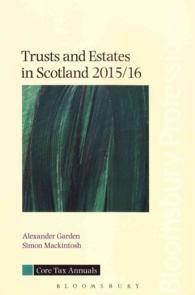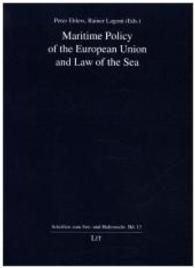- ホーム
- > 洋書
- > 英文書
- > History / World
Full Description
During the period of Mongol occupation from 1258-1386, Baghdad was a site of intense intellectual debate and dialogue between Shi'i and Sunni communities. In this long-established centre of learning in the Islamic world, scholars such as Ibn Taymiyya and the influential Imami Shi'i scholar Allamah al-Hilli participated extensively in the transmission of knowledge across sectarian lines, as both students and teachers. Tarqi al-Jamil here contextualises the social and political climate of Iraq during this time, examining the dynamic and complex nature of Shi'i-Sunni relations and their competition for authority and legitimacy. This significant new history provides a challenge to contemporary discourses - both scholarly and in the popular media - that tend to falsely attribute the current political conflict in Iraq to pre-modern Shi'i-Sunni relations in the region. Instead, al-Jamil articulates a framework for understanding the negotiation of boundaries between Shi'i-Sunni religious communities, broadening the consensus of critical historical knowledge concerning what it meant to be Shi'i or Sunni.
Contents
Introduction
Chapter One: Conflict and Cooperation:
Cultural, Social and Religious Life of the
Shi'ah and the Ahl-Sunnah in the City
Chapter Two: Social Affiliation and
Religious Identity among Shi'i and
Sunni Scholars
Chapter Three: Religious Institutions,
Political Intervention and Patronage
Chapter Four: Polemics: Refutations
and Counter-refutations
Chapter Five: Secrecy and Honor: Dissimulation
in Social Practice
Conclusion
Bibliography








